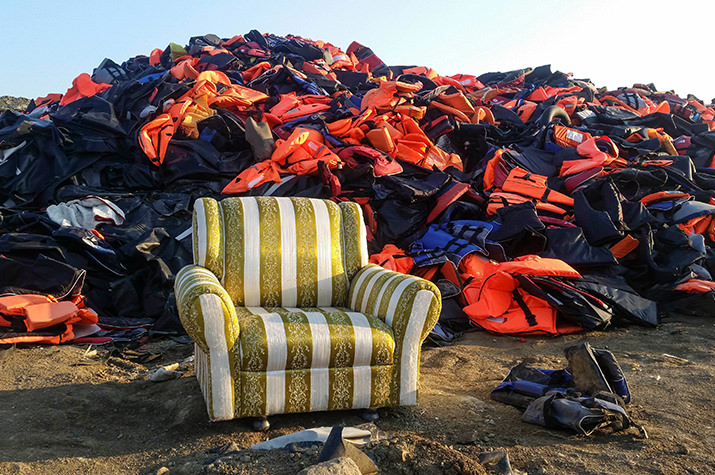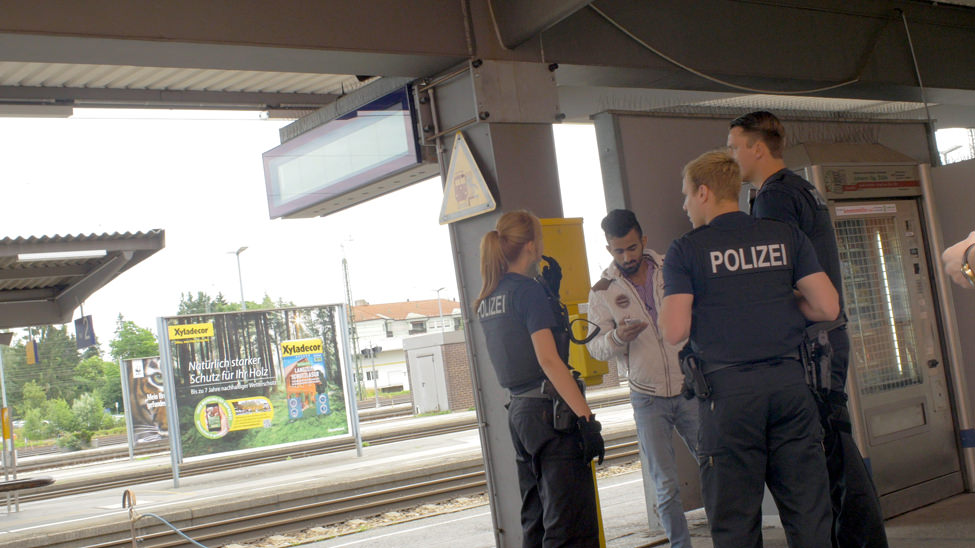The Crossing
She's filming a documentary on the massive migration of Syrian refugees. But do filmmakers like Linnea Langkammer '14 contribute, in any way, to stopping the atrocities?
You were heartbroken.
The image of the 5-year-old Syrian boy, having been pulled from the bombed-out rubble of his home, perched on an orange ambulance seat, his little body covered by concrete paste, his face bloodied, his floppy hair the color of pitch.
How long before you looked away from that face?
The face of war. The face of Aleppo. The face of Syria, a nation swallowing itself whole by civil war; unraveling because of Assad, because of ISIS, because of Russian and Syrian bombs dropping from the bright, blue, cloudless sky; because of Western indifference; because, well, because it’s the Middle East.
His name: Omran Daqneesh.
You saw the photo. You watched the video—Omran’s too tired, bewildered, afraid to remember how to cry.
Your stomach hurt for days. It must stop, you thought.
The violence didn’t stop. The bomb strike that left Omran literally shell-shocked killed his 10-year old brother, Ali, who died three days later. For him, the struggle is over.
It’s only the dead who have seen the end of war.
That photograph. Maybe you felt that you had to do something about the hundreds of thousands of refugees spilling out of Syria, desperate to escape to Turkey, and then to Greece aboard battered and crowded dinghies.
All the suffering children caught up in war. We have to fix this. Stop the carnage, you thought. Or, maybe, you saw the image and just turned the page of the newspaper. Linnea Langkammer ’14 grabbed her camera, saddled up on an REI Novara bike and rode east: 6,000 km from Munich to Istanbul.
“I remember seeing the photo of the little boy in Aleppo. I also remember the image from last September, of the toddler [Aylan Kurdi] lying face down on the sandy shores after the boat taking him and his family to Kos capsized,” Langkammer says.
She is a filmmaker who felt compelled to set out on a 12-week excursion, riding through Germany, Austria, Serbia, crossing the Macedonian border town of Gevgelija into Greece, and then ferrying across the Aegean Sea to Istanbul.
She pedaled east to retrace, backwards, the route of the refugees escaping the Hobbesian state where war has led to the death of at least 470,000 Syrians, according to the Syrian Center for Policy Research. That was a February 2016 estimate. It’s now fall.





